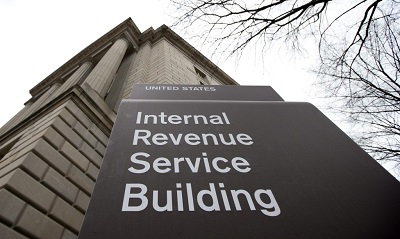“Know your client” is fundamental to managing issues that might arise in tax and estate planning, according to Christine Perry, lawyer at Keel Cotrelle LLP and specialist on cross-border tax and estate planning solutions for high net worth individuals. She led an afternoon seminar titled “Americans Among Us: US Issue Identification” at the CFA Society Toronto downtown offices on October 29, 2013.
“Sometimes a client does not even realize he has to make a US tax filing,” said Perry, citing as an example someone born out of wedlock, not in the US, but whose mother is a US citizen. She quoted from William Newton, The Inadvertent American regarding “a class of persons who have no real connection with the US” but who still must file US tax from birth.
Citizenship can be a complicated matter, said Perry. A client may think he has renounced citizenship, but still be classed as a US citizen. It is not enough to take expatriating acts (such as an oath of allegiance to a foreign country); the client must do so “voluntarily and with intent to relinquish US citizenship”. Generally, a person must appear in person at a US embassy or consulate in a foreign country and sign an oath of renunciation should they wish to renounce.
There may be some cases where a retroactive loss of citizenship could be argued, said Perry, “but proceed with caution” because, in general, the Department of State wants to keep its citizens.
The US and Canadian tax systems are very different when it comes to disposal of assets. Although both systems have income tax, the US also has a transfer tax. A gift tax kicks in whenever there is any lifetime transfer of property for less than its full value. “It’s often overlooked,” she said, outlining the key gift tax mechanics. There is an annual gift tax exemption of $14,000 per person per year, and a lifetime gift tax exemption of $5.25 million (as of 2013; limit is indexed for inflation).
Besides advising trustees on a variety of domestic and cross-border issues, Perry’s practice includes domestic and international will and trust planning. “The US applies an estate tax on the fair market value of the worldwide gross estate of both US citizens and individuals who are domiciled in the US at the time of their death,” she said. “Even a non-immigrant can have a US domicile; regardless of the fact that they are present in the US on a non-immigrant visa”. All transfers of property to a US citizen spouse are deducted in computing the estate, she noted, which is “analogous to spousal roll-over, as in Canada.” Non-citizens who are not domiciled in the US might still have to pay US estate tax, if they have “US situs assets.”
Perry recapped recent changes to the estate tax law. Legislation under G.W. Bush (the 2001 Economic Growth and Tax Relief and Reconciliation Act) eliminated the estate tax as of January 2010. Perry noted there were many trusts whose perpetuity was coming to an end in that year, resulting in a massive shift of wealth. In December 2010, Obama signed into law the 2010 Tax Relief, Unemployment, Insurance Authorization, and Job Creation Act. This stop-gap law (that expired December 2012) had a $5 million exemption and a top rate of 35 percent. In January 2013 Obama signed into law the 2012 American Taxpayer Relief Act that indexed the $5 million exemption, and set the top rate at 40 percent. “He has spoken about changing this to 45 percent in 2018,” she noted.
The estate tax rate “goes to the heart of the American dream,” observed Perry . In 2012, fewer than 27,000 estate tax returns were filed, generating less than one percent (0.63 percent) of revenue to the government. Nonetheless, changes to the estate tax are a hot-button issue. Prior to 2001, the top estate taxation rate was 55 percent. “The size of the cuts [in tax rate] made were unprecedented,” she said, but were popular. Polling has shown that, regardless of socioeconomic status, most Americans do not support a wealth transfer tax when passing wealth on to their children. ª
Circular 230 Disclosure. Pursuant to US Treasury Department regulations, any federal tax advice contained in this written communication is not intended or written to be used, and may not be used, for the purpose of (i) avoiding tax-related penalties under the Internal Revenue Code or (ii) promoting, marketing or recommending to another party any tax-related matters addressed herein.


